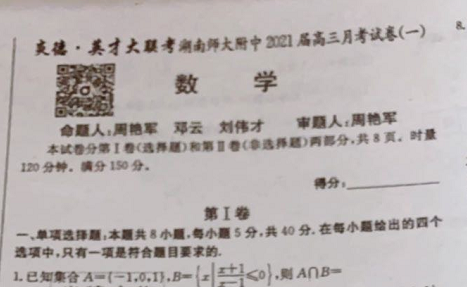
阅读理解
we walk, talk and sleep
with our phones. but are we more — or less-connected? just as remarkable as the
power of mobility, over everything from love to global development, is how fast
it all happened. it is hard to think of any tool, any instrument, any object in
history with which so many developed so close a relationship so quickly as we
have with our phones. not the knife or match, the pen or page. only money comes
close—always at hand, don't leave home without it. but most of us don't take a
wallet to bed with us. don't reach for it and check it every few minutes, and
however useful money is in pursuit of fame, romance, revolution, it is inert
compared with a smart phone — which can replace your wallet now anyway.
so how do we feel about
this? to better understand attitudes about mass mobility, time, in cooperation
with qualcomm, started the time mobility poll, a survey of close to 5,000 people
of all age groups and income levels in eight countries. even the best survey
can be only a snapshot in time, but this is revealing a lot about both where we
are now and where the mobile wave is taking us next.
not for a day — in most
cases not even for an hour. in time's poll, 1 in 4 people check it every 30
minutes, 1 in 5 every 10 minutes. a third of respondents admitted that being
without their mobile for even short periods leaves them feeling anxious. it is
a form of sustenance, that constant feed of news and notes and nonsense, to be
the point that twice as many people would pick their phones over their lunch if
forced to choose. three-quarters of 25-to 29-year-olds sleep with their phones.
we walk, talk and sleep
with our phones. but are we more — or less-connected? just as remarkable as the
power of mobility, over everything from love to global development, is how fast
it all happened. it is hard to think of any tool, any instrument, any object in
history with which so many developed so close a relationship so quickly as we
have with our phones. not the knife or match, the pen or page. only money comes
close—always at hand, don't leave home without it. but most of us don't take a
wallet to bed with us. don't reach for it and check it every few minutes, and
however useful money is in pursuit of fame, romance, revolution, it is inert
compared with a smart phone — which can replace your wallet now anyway.
so how do we feel about
this? to better understand attitudes about mass mobility, time, in cooperation
with qualcomm, started the time mobility poll, a survey of close to 5,000 people
of all age groups and income levels in eight countries. even the best survey
can be only a snapshot in time, but this is revealing a lot about both where we
are now and where the mobile wave is taking us next.
not for a day — in most
cases not even for an hour. in time's poll, 1 in 4 people check it every 30
minutes, 1 in 5 every 10 minutes. a third of respondents admitted that being
without their mobile for even short periods leaves them feeling anxious. it is
a form of sustenance, that constant feed of news and notes and nonsense, to be
the point that twice as many people would pick their phones over their lunch if
forced to choose. three-quarters of 25-to 29-year-olds sleep with their phones.
郑重声明:本文下载亚博app的版权归原作者所有,转载文章仅为传播更多信息之目的,如作者信息标记有误,请第一时间联系下载亚博app修改或删除,多谢。
